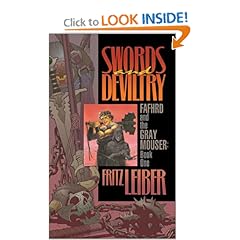
I finally finished
Quicksilver. I originally bought the novel about five years ago and initially read 200 pages. Stephenson style initially seemed impenetrable with it reams of description and asides. I started it again in May 2008 and maybe read another 100 pages. I found it full of fascinating ideas and historical vignettes but the story was poorly paced and some of the language was strangely anachronistic. In hindsight I realize the author was deliberate in his choice of modern phrases.
I finally picked it up again mainly due to pressure from my better half to empty out some of the book shelves. It took me a few more chapters of slogging but now the book started to hold my attention.
Previously I had enjoyed Stephenson excellent cyberpunk novel
Snowcrash. Quicksilver is a very different affair and lacks the former's snappy pace. It's only real science fiction trappings are a fascination with encryption and a minor if significant character Enoch root a possibly immortal alchemist.
The novels spans the middle to late 17th century and takes place in England, France, the German principalities and the Massachusetts colony. It cover a period of religious discord and scientific awakening; the development of the absolute monarchy in France and it's end in Britain.
The main character are Daniel Waterhouse; a contemporary and sometimes friend of Isaac Newton; Jack Shaftoe; rogue, vagabond and adventurer; and Eliza a former slave of the Turkish Sultan's Harem. These characters lives intersect at various point and also interact with a variety of persons of historical significance.
Stephenson style echos that of the early novel not only in the use of language but also in form. Parts of he book are epistolary while other read like a picaresque adventure. Throughout the author provides huge amounts of historical details, some times in overwhelming volumes.
The initial chapters deal with Waterhouse's background and a secondary plot set years later when he is an old man. It was here I kept getting bogged down and it was only in the final pages of the first part of the novel that my interest was really piqued. It also probably took me that long to adjust to Stephenson's style. The introduction of Jack and Eliza in part two brings about a change of pace and scenery and gradually the various plot threads and characters tie into a cohesive whole.
Stephenson is obviously proud of the research he has done and is quite happy to describe in depth everything from pike and shot warfare to the birth of the stock market. While I found each individual subject interesting; some so much so I intend to do further reading on them; they give the story a very stop start, almost episodic feel.
The novels ending ties up enough loose threads to leave me happy but leaves enough plot hooks for the two sequels. i'll certainly read them at some future point but probably when I have more free shelf space.


